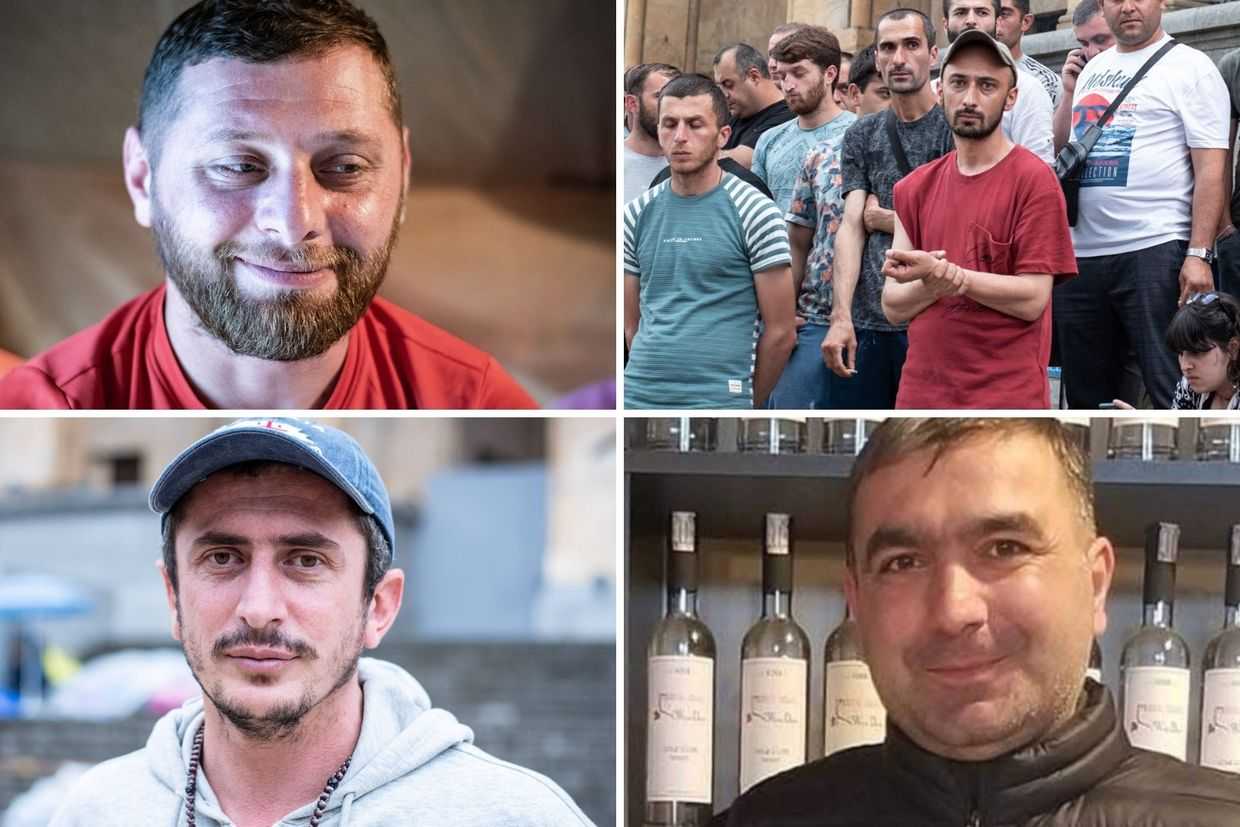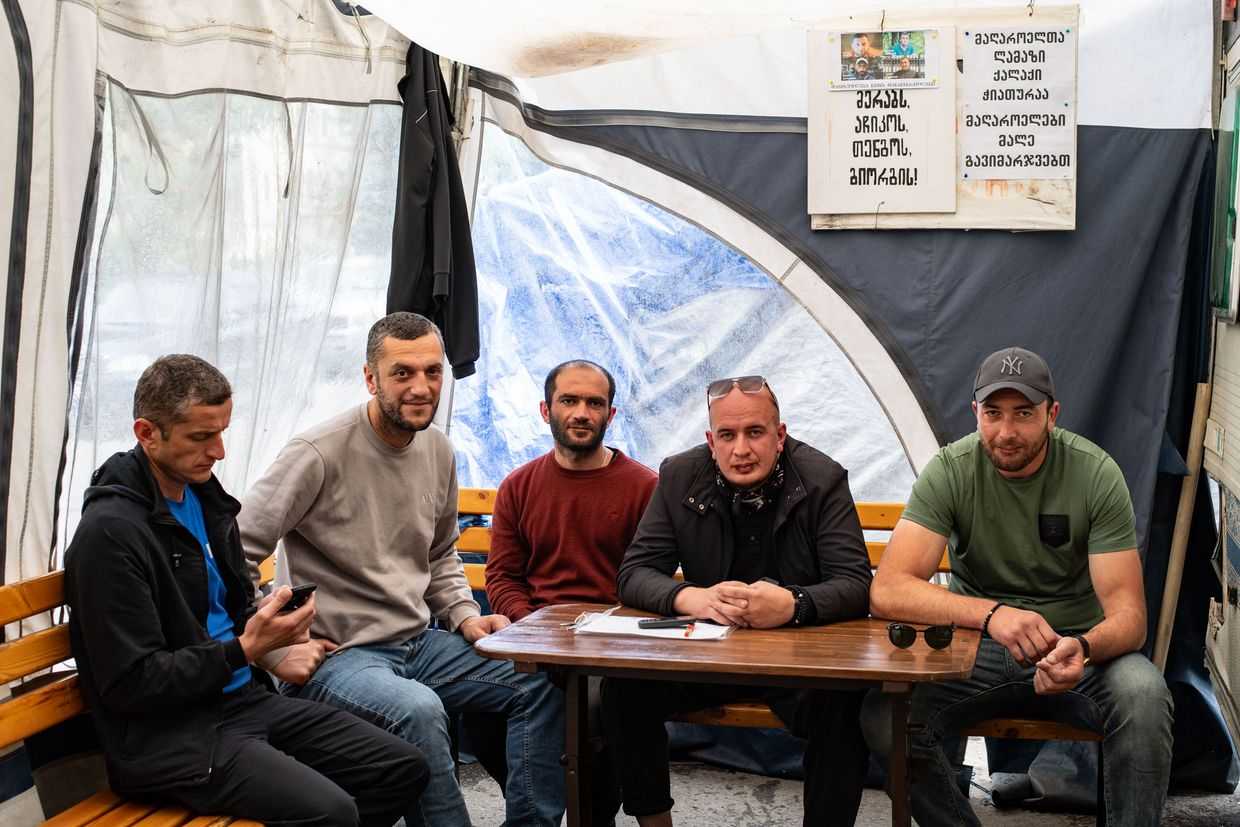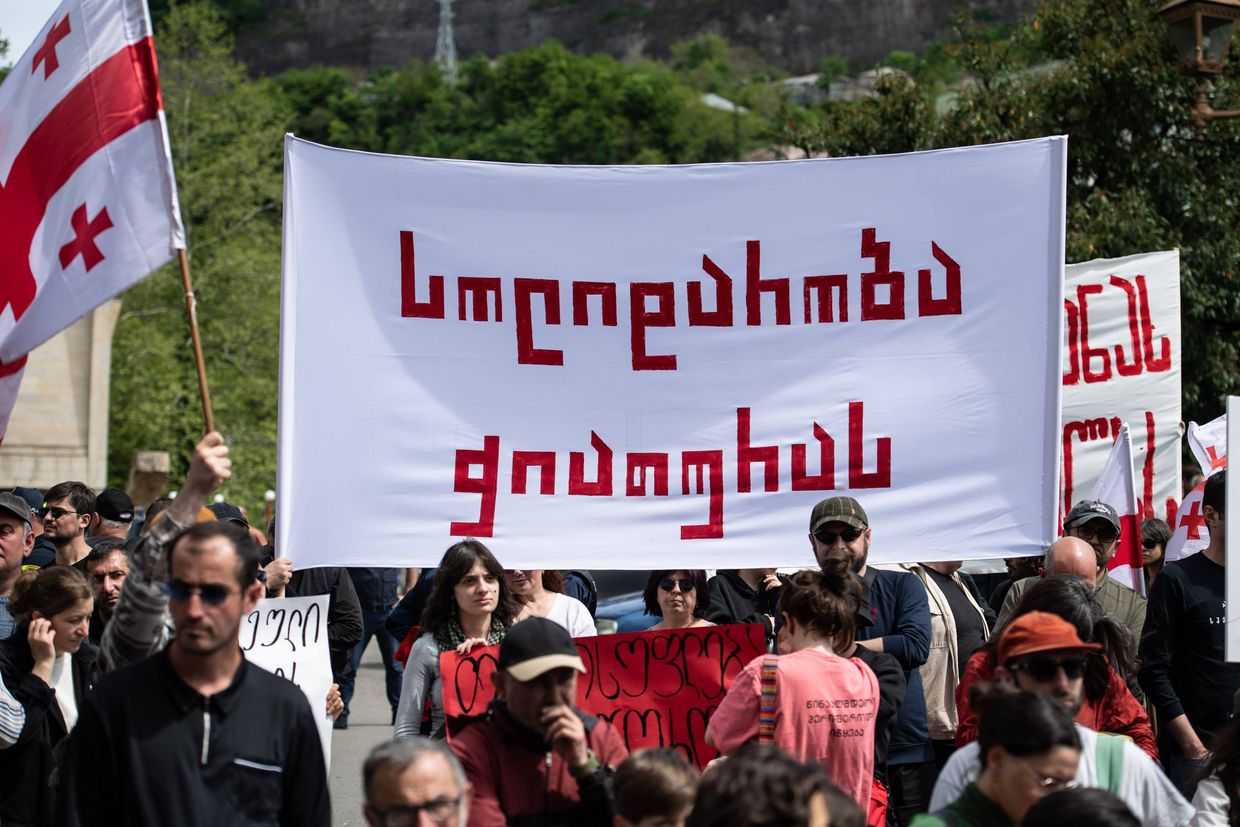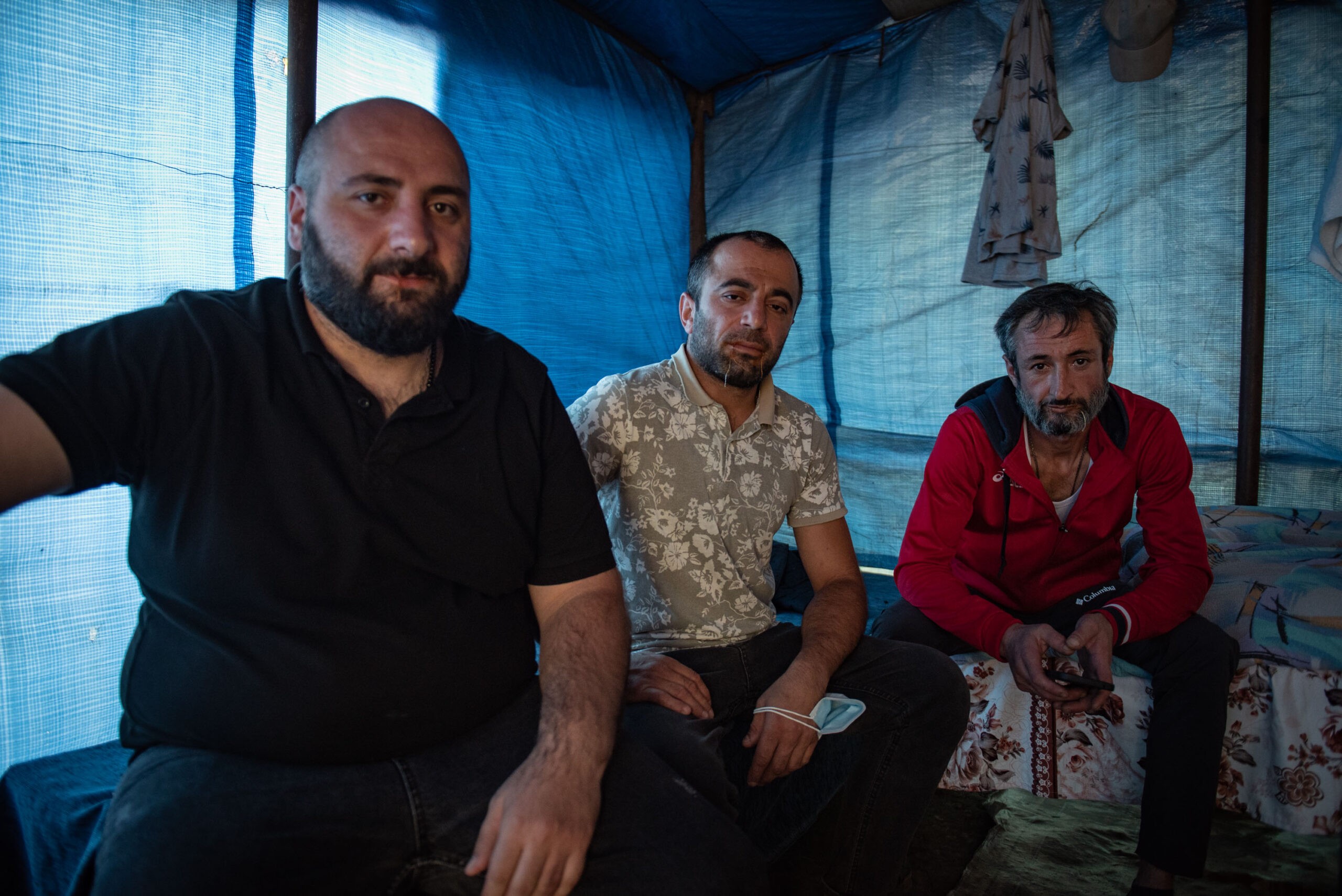
On Sunday, three protesters from the village of Shukruti sewed their lips shut in an attempt to attract attention to their protest against the damage manganese mining is causing to their homes. This latest action follows more than five months of continuous protest by local residents.
Sunday morning was gloomy in the protest tent. People had been gathering since the early hours, knowing that some of the protesters had made the decision to take the extreme measure of sewing their lips shut.
Women sitting outside the tent could not stop crying, saying that they failed to stop the protesters from taking this action.
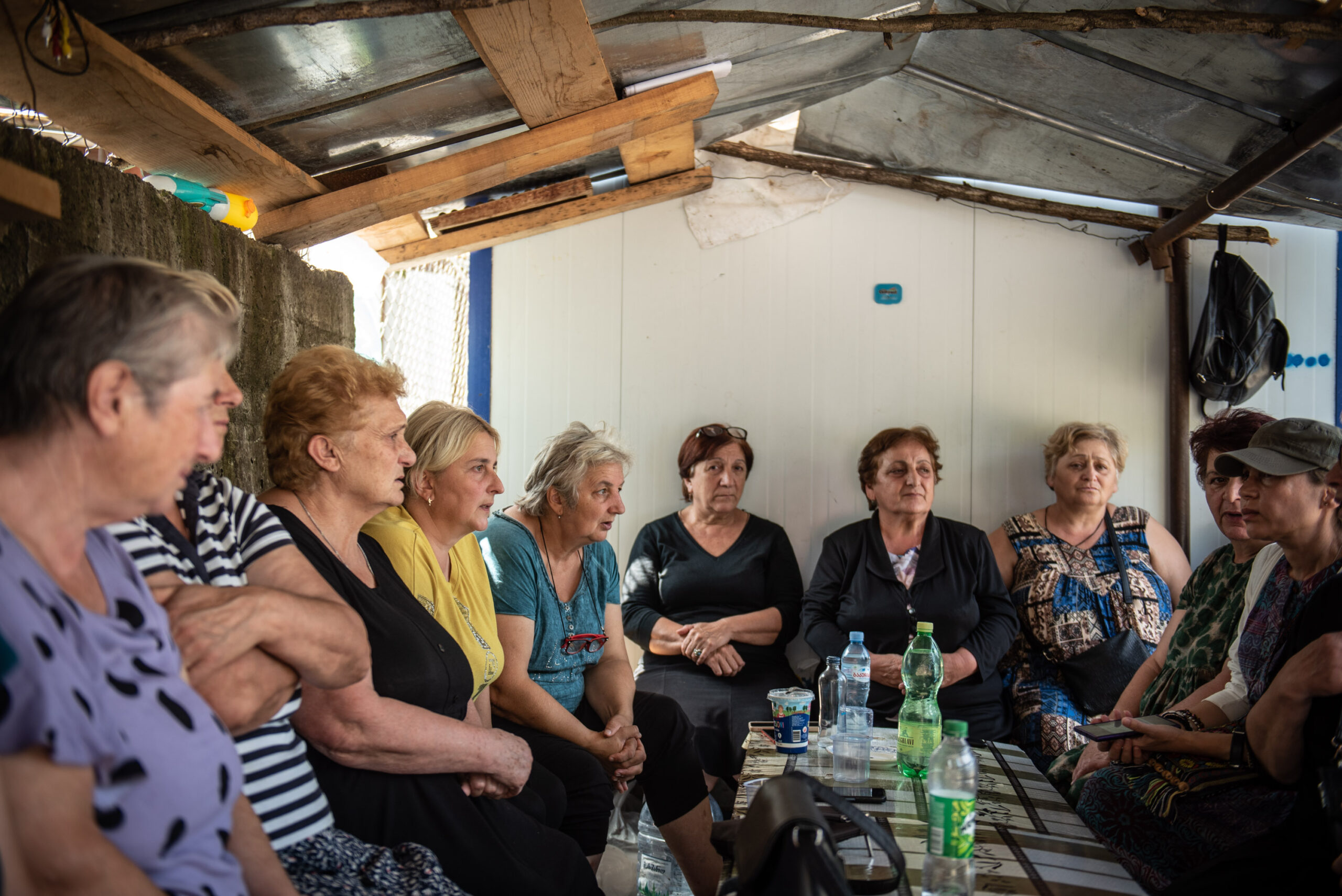
‘They are our sons and our husbands. If this doesn’t end soon, we are going to join them. How can we allow them to die like this,’ one of the protesters said, barely holding back her tears.
The protesters decided to sew their lips shut on 26 August after a group of Shukruti residents were unable to complete a protest march to Chorvila, the birthplace of Georgian Dream founder Bidzina Ivanishvili, two days prior. Upon their arrival to the village, local residents blocked the road as police stood by.
Jumber Tsutskiridze, one of the men who decided to sew his lips shut, had worked in the Mghvimevi Mine as an excavator operator for seven years, before being fired in July. After being dismissed, he took his case to court.
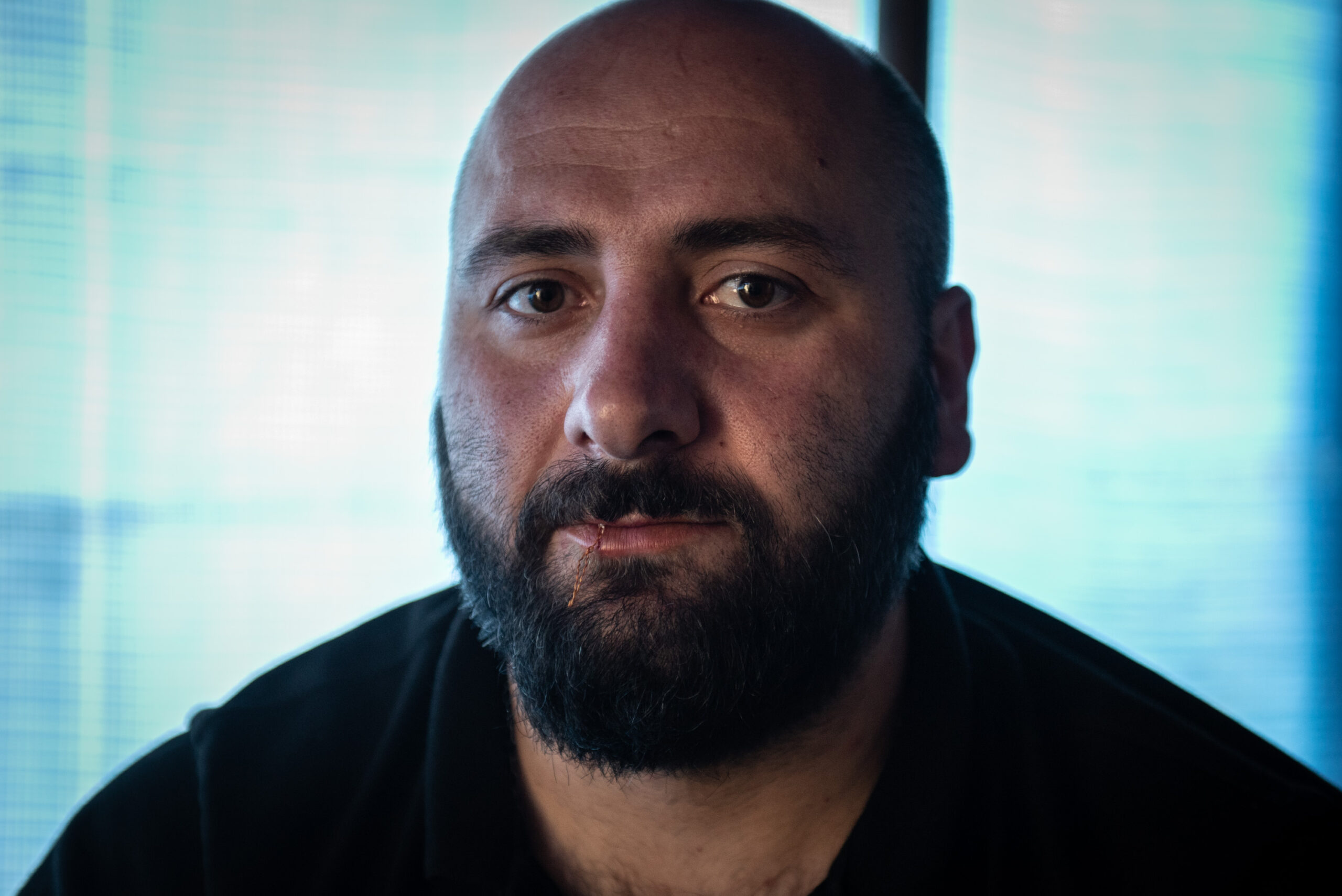
‘Maybe sewing our mouths can bring some results; maybe we reach our goal this time’, Tsutskiridze told OC Media, adding that after more than five months, the government still hadn’t paid any attention to the protests. ‘We want someone from the government to get involved and act as a guarantee that if we achieve an agreement with the company, they will make sure that this agreement is enforced’.
Tsutskiridze said that Georgian Manganese, the company that owns the license to operate mines in Chiatura, had lied to them many times, including after a protest in 2021, during which eight people from Shukruti sewed their lips shut for a month.
That time, the company signed an agreement with the protesters, but the terms were never fulfilled.
[Read more: In pictures | Lips sewn shut in Chiatura’s sinking village]
Amiran Shekiladze was among those eight protesters; on Sunday, he again sewed his lips shut, this time in desperation.
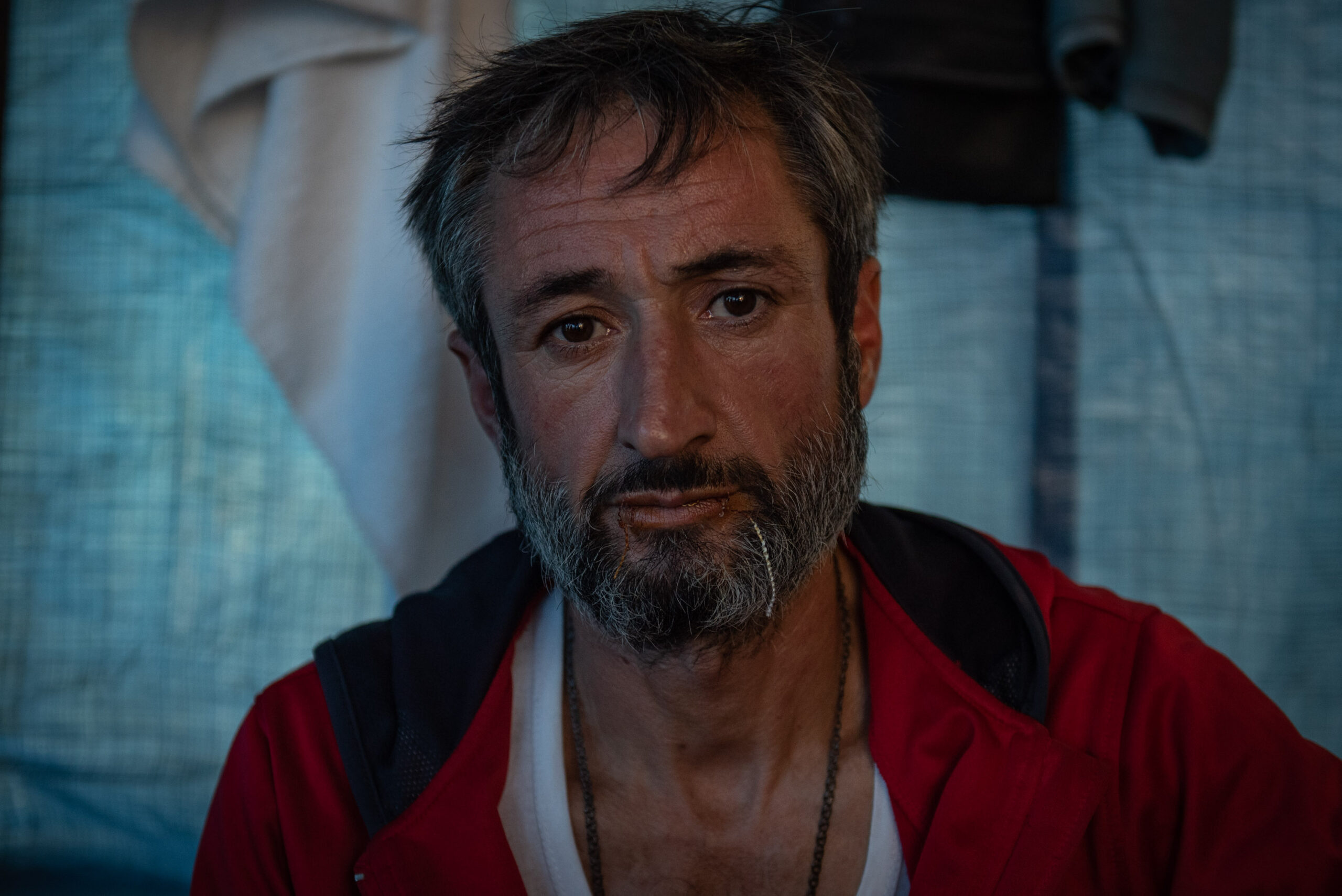
According to Shekiladze, while last time he didn’t have any illusions that the agreement would be valid, the protesters just ‘couldn’t take it anymore’, and so ended the protest.
‘I was becoming weaker and weaker. It was unbearable. I was even losing my voice. It had to end. [Georgian Manganese] didn’t fulfill their promise; they didn’t bring the National Forensics Bureau, but some company they hired, which didn’t evaluate our property properly’, he told OC Media.
Giorgi Bitsadze, the third protester who sewed his mouth shut on Sunday, was also fired from his job earlier this year. He has two stitches on his lips. When he leaves the tent, he wears a facemask in order to not scare his son, who is joining him in the protest along with his wife.
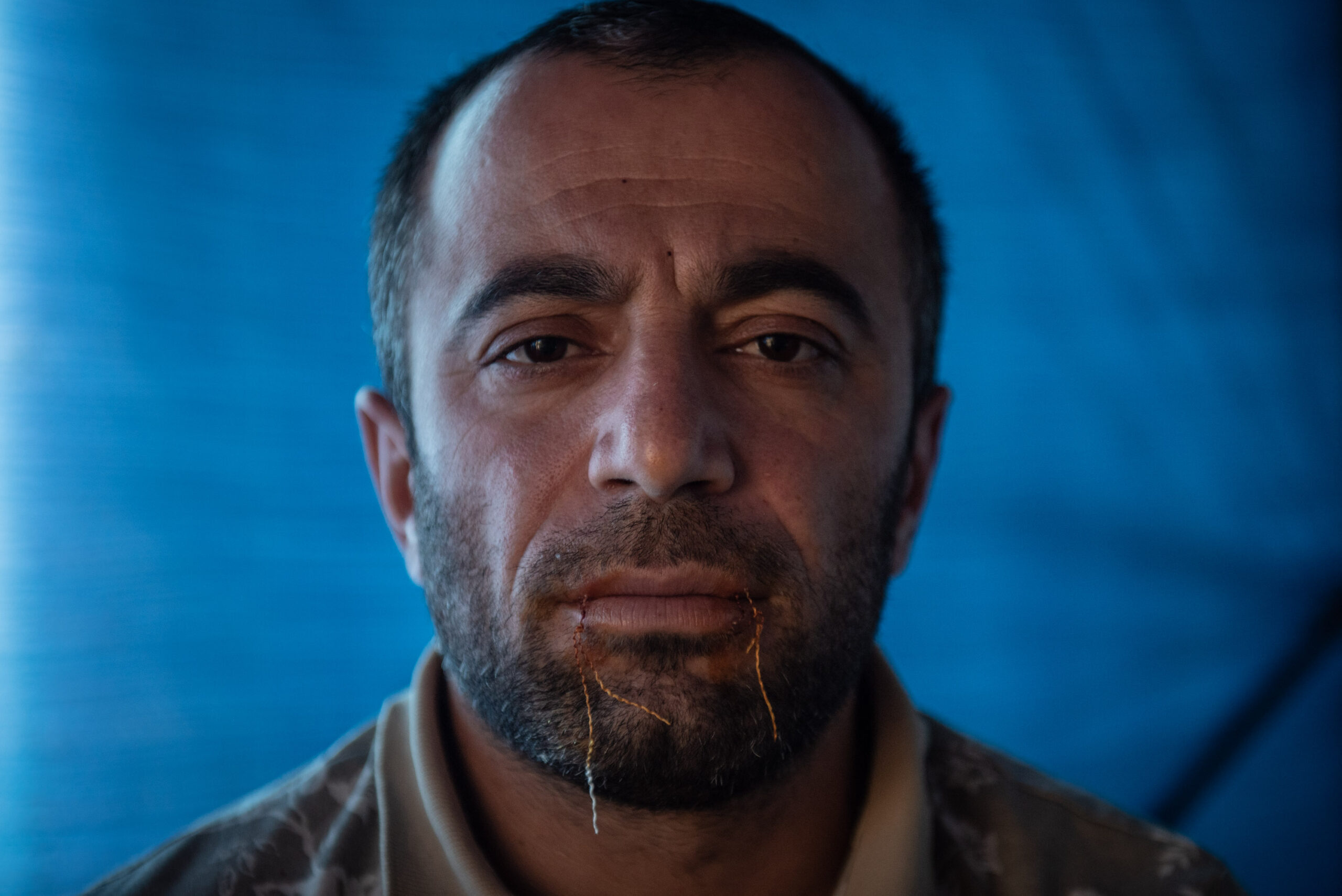
‘[Georgian Manganese] brought me to this point. This is not some kind of joke that we did here, the fate of our village, the fate of our families made us do it, we couldn’t find justice anywhere, at all. So here we are’.
Tsutskiridze told OC Media that they stitched their lips together themselves.
‘It didn’t hurt that much to be honest’’ he said.
‘It will hurt when you want to yawn, believe me’, one of the protesters from 2021 told him.
The atmosphere both in the tent and outside was heavy and sad, but some of the protesters still told jokes to lighten up the mood. Women told each other about the new cracks they find in their homes every day. One of them, Tamar, said that she has a little bit of concrete at home, and fills the cracks herself.
‘I am just scared something nasty will sneak in’, she said.
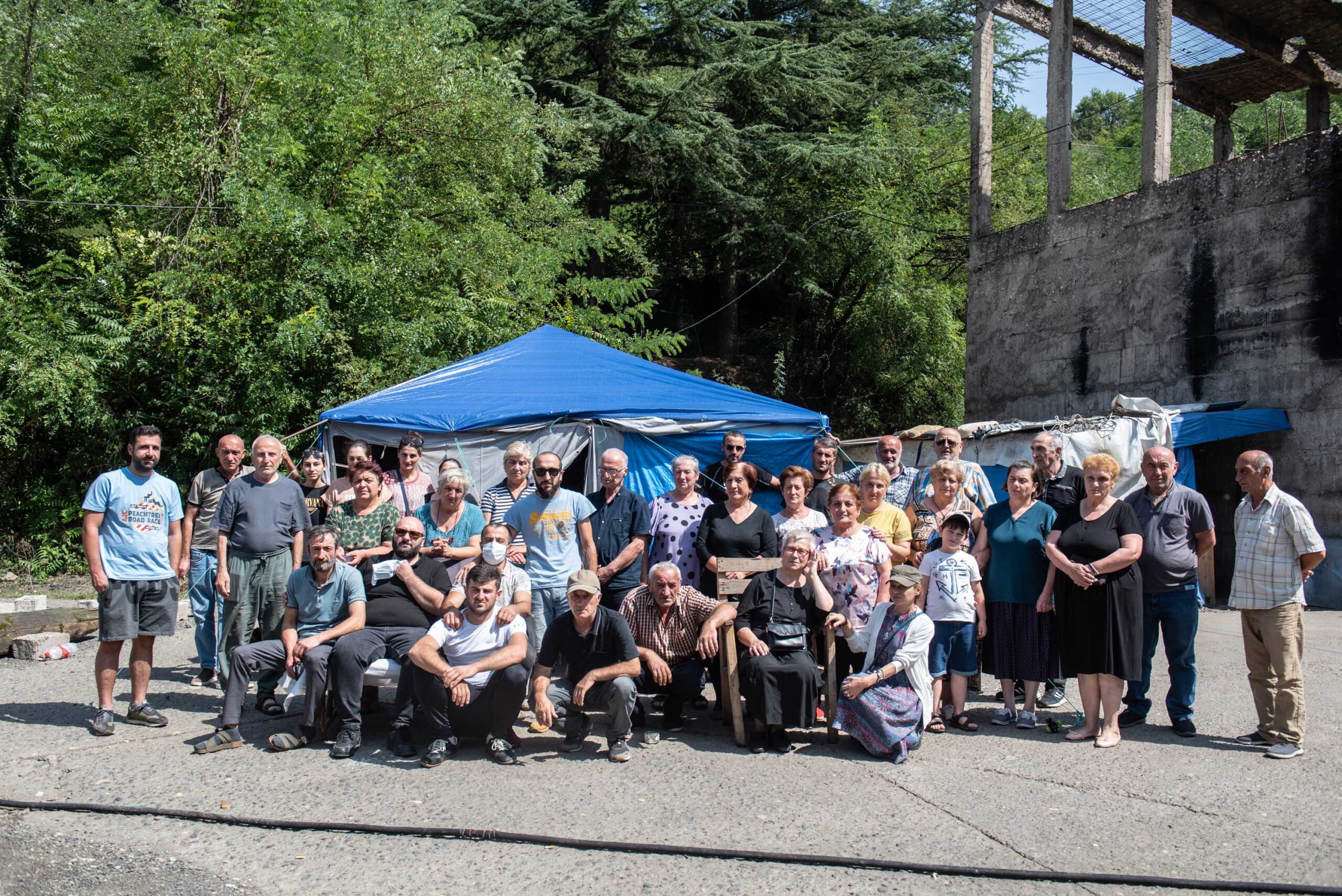
[Read more: In Pictures | Living on the brink of collapse in Shukruti]
A few weeks ago, Magharoeli LLC, a subcontractor of Georgian Manganese, sued the protesters demanding compensation of ₾5 million ($1.9 million) for company loss experienced as result of the protest. A court decision prohibited any protests from being held outside the mine while the trial is ongoing. However, protesters have continued their protest at the original location, blocking the entrance of the Korokhnali mine.
‘Instead of trying to negotiate, they sued us and demanded enormous compensation from us. That money may be nothing for them, but for us — we may never be able to see that amount of money in our lives’, Bitsadze told OC Media.
‘We want to try to show the truth to people, to the state. I am ready to die for this truth. With my word, with this form [sewed lips], if it is necessary for a 30-year-old guy to die for it, let it be. Let’s see’.
Residents of Shukruti originally began protesting in 2019. The protests have continued on and off since then, without any results.



